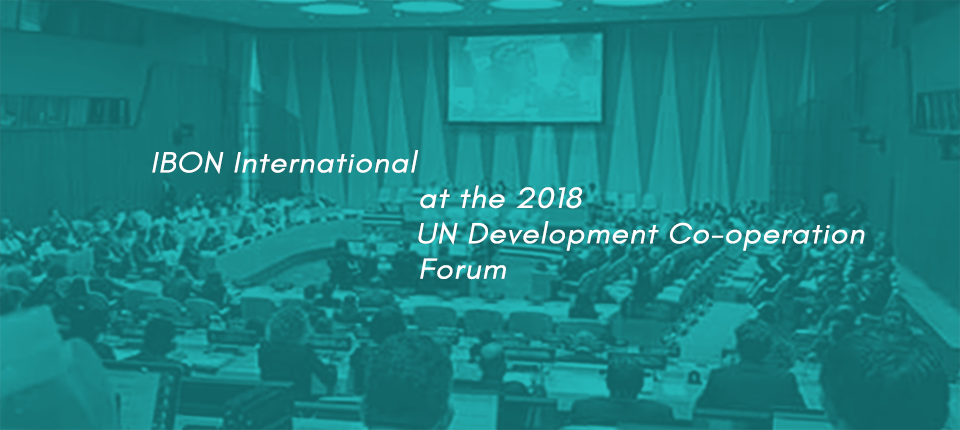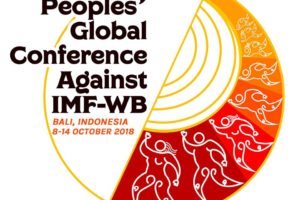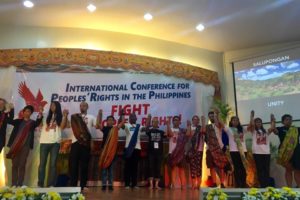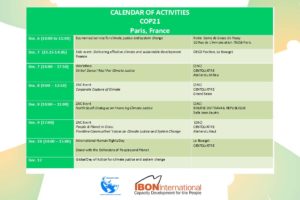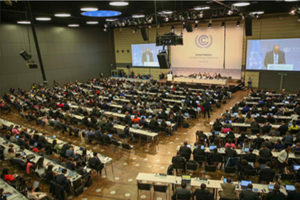[[{“type”:”media”,”view_mode”:”media_original”,”fid”:”2049″,”attributes”:{“alt”:””,”class”:”media-image”,”height”:”430″,”style”:”width: 600px; height: 269px;”,”typeof”:”foaf:Image”,”width”:”960″}}]]
On 21 May 2018, Amy Padilla, Director of IBON International, represented the organisation at a session on aligning development co-operation institutions to the 2030 development agenda. This was part of the 2018 High-Level Meeting of the Development Co-operation Forum (DCF) of the UN Economic and Social Council (UN ECOSOC).
The session aimed to describe the state of play when it comes to the role of ODA and development co-operation institutions “in reaching outto the most vulnerable and marginalised countries and peoples” and in climate action.
On behalf of IBON International, Amy Padilla highlighted the need to ensure people’s rights, especially for marginalised communities, and the people’s ownership of their development path and related processes – with poverty eradication as the essential development outcome. She also sounded the alarm on the greater development aid to the private sector as channelled through development finance institutions with poor accountability mechanisms.
Read her intervention below.
***
Thank you Madam Moderator. I'd like to raise two points:
1. First, aligning institutions with the 2030 Agenda means that marginalised communities — which include women, indigenous, rural peoples, among others — must be ensured of their access to basic human rights through effective participation and consultations which require democratic ownership in stages of planning, implementation, and monitoring at the national, regional and global levels that ensure power-holders are accountable to communities involved.
In the climate crisis, it is communities of the global South which are hardest hit. There is resounding affirmation in this morning’s discussion on the need for ODA commitments to be fulfilled, applying development effectiveness principles of transparency and accountability, democratic country ownership, focus-on-results, inclusive development partnerships, in addition to the respect of human rights must be ingrained in this.
2. Second, I'd like to point out to a development actor in relation to ODA – and this forms part of contributions we submitted to the Secretary General’s report. ODA to the private sector has clearly been on the increase. This demands stronger actions for accountability and transparency.
There is no clear way to measure the volume of development-focused private sector initiatives, including some in the form of blended finance. This and more are what we refer to in IBON International as financialisation of development cooperation.
The private sector should be held to observe the same transparency and accountability standards expected of all development actors. One cause for alarm is that this is frequently channelled through development finance institutions (DFIs) with poor accountability mechanisms. I am from the global South and there is a plethora of development projects in the global South which have deleterious impact on the people.
The core of development cooperation is poverty eradication that should have a clear bias for marginalised and oppressed peoples. As such, there should be stronger international response especially from states to ensure that transparency, accountability and strong adherence to human rights are ensured. ###
See also: this link to the 2018 DCF Program, in particular the Session 1 on Day 1: “Building sustainability and resilience through development cooperation”
